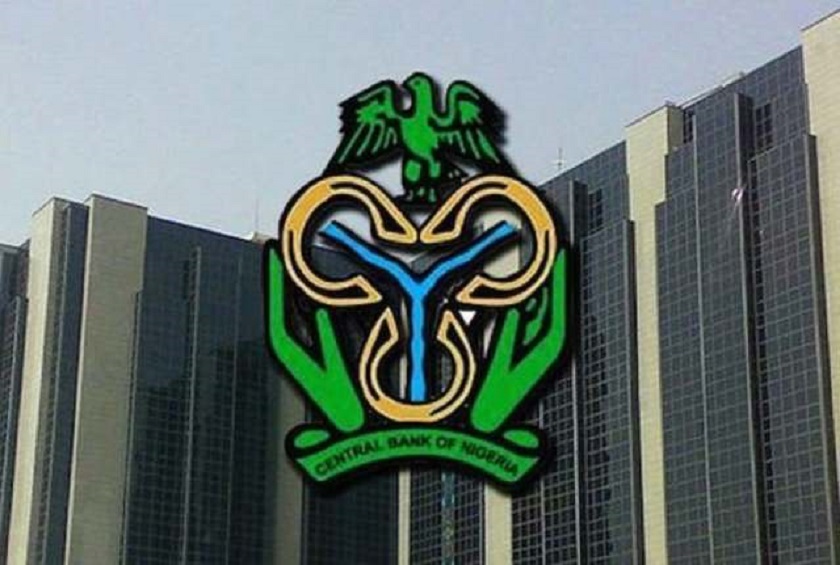Jobs/Appointments
Damages Recoverable for Wrongful Dismissal

By Benita Ayo
It is to be expected in every human relations for conflict to arise. By its nature, the relationship between an employer and the employee is contractual and thus, any breach of the terms of contract is treated as a fundamental breach to which the aggrieved party will be entitled to damages.
The relationship between the employer and the employee is often governed by the contract existing between them stating various terms relating to the relationship.
Termination versus Dismissal: Differences in Between
While termination is bringing to an end to something, dismissal is the act of ordering or allowing someone to leave.
In light of the above, the differences between these two is that in the first situation (Termination), a party is merely exercising his rights in an agreement regulating the relationship and the affected party has a say in how the right is exercised. It is bringing the contract of employment to an end after giving the required notice or payment in lieu of notice. Termination is a mutual decision. In this case, the employee is entitled to payment of benefits.
In the case of dismissal, the employer simply removes the employee without any notice given or payment in lieu of notice.
The court has made some distinction between these two in the case of SEVEN UP BOTTLING COMPANY PLC v. AUGUSTUS (2012) LPELR-20873 where it held thus “It is trite that “dismissal” of an employee by the employer translates into bringing the employment to an end while under “termination of appointment”, the employee is enabled to receive the terminal benefits under the contract of employment. The right to “terminate” or bring an employment to an end is mutual in that either party may exercise it. “Dismissal” on the other hand is punitive and depending on the contract of employment entails a loss of terminal benefits. It also carries an unflattering opprobrium to the employee.”
From the above authority, the differences between termination and dismissal are;
Termination is a right exercisable under a contract of employment and it is a mutual decision while dismissal is a punitive measure for the wrongful conduct of the employee.
Where a reason is given for bringing the relationship to an end, this will amount to dismissal but where a reason for bringing the relationship to end is not given then this will amount to termination.
An employee is not entitled to receive terminal benefits where he is dismissed but he is entitled to such benefits where the employment relationship is terminated.
Notice or payment in lieu of notice is given to the affected employee in the case of termination. This is not the situation with dismissal.
Elements of Termination and Dismissal
The element(s) of termination and dismissal include;
Termination
Explanation for disengagement is not required
A month notice or payment of one month salary in lieu of notice is required
The disengaged staff is entitled to terminal benefits
Dismissal
Reason for disengagement must be given
A month notice or payment of one month salary in lieu of notice is not require
In most cases, the dismissed staff is not entitled to terminal benefits
The dismissed staff must be confronted with the allegations against him, accorded fair hearing and be made to appear before a panel before sanction.
Damages Applicable to Wrongful Termination
The damages applicable to wrongful termination is that the Claimant becomes entitled to the salary and other entitlements already lawfully accruable. This covers the period within which the employer would have lawfully terminated the contract of employment.
In the case of OSISANYA v. AFRIBANK (NIG) PLC (2007) 6 NWLR (PT. 1031) @586 PARAS. D-E (SC), the Appellant was an employee of the Respondent. Two individuals alleged that the appellant had committed some dishonest acts in the course of his duties under the respondent. In consequence, the appellant was suspended from work.
However, those who wrote the petition later withdrew it. That appeared that the petition had been motivated by malice. The appellant’s expectation that he would be recalled from suspension following the withdrawal of the petition did not materialize.
Rather, the appellant by a letter dated 12/10/87 was summarily dismissed from the respondent’s employment.
Consequent upon his dismissal, the appellant filed an action at the High Court against the respondent claiming, amongst others, a declaration that his dismissal from the services of the respondent was wrongful, unlawful and unconstitutional and some other reliefs.
Alternatively, the appellant claimed from the respondent the sum of ₦176,602.00 (One Hundred and seventy-six thousand, six hundred naira only) being special damages for his wrongful dismissal from the services of the respondent.
The trial court, after hearing both parties, granted a substantial part of the appellant’s reliefs and held that the appellant was deemed to be in the respondent’s employment till 14/10/96 which was the date judgment was delivered.
It equally held that the appellant’s employment with the respondent was to be determined from the next day by payment to him a month’s salary in lieu of notice. The respondent’s appeal to the court of Appeal was allowed.
The court of Appeal in setting aside the judgment of the trial court held that the appellant was to be paid all his salaries and entitlements up to 12th October, 1987, the date of dismissal and thereafter a month’s salary in lieu of notice. Dissatisfied with the decision of the court of Appeal, the appellant appealed to the Supreme Court.
The Supreme Court adopted the two issues formulated by the respondent as follows:
Having regard to the lower court’s decision that the dismissal of the appellant by the respondent was wrong was the court right in awarding him one month’s salary in lieu of notice and his salaries and entitlements up to the date of his wrongful dismissal.
Could the dismissal or termination of the appellant from the employment of the respondent affect his privileges, rights, benefits and status as a shareholder in the respondent’s company in view of the provisions of the Companies and Allied Matters Act.”
In the final analysis, the Supreme Court held that the appeal had no merit. It was thus accordingly dismissed.
In its pronouncements, the court stated that “In a master/servant relationship, the damages available to the employee is the payment of his salary and other entitlements already lawfully accruable and payable for the period for which the employee should have been given notice of termination. The damages will be the amount he would have earned if his employment was properly and validly determined………..” PER OGBUAGU, J.S.C.
The above position was also emphasized in the case of 7UP BOTTLING COMPANY PLC v. ANYANYAAFAM AUGUSTUS (2012) LPELR-20873 (CA), the Respondent, until the month of October 2002 was an employee of the Appellant company and worked in the Appellant’s Accounts Department.
Sometimes in the month of August 2002, it was alleged that the respondent had fallen short of the standard required of his office when he fraudulently made two payments of ₦30,000.00 to one Mr O. E. Nwosu (Secretary to the Marketing Manager of the Appellant’s company) on the 5th and 6th days of August 2002, respectively which the respondent denied.
A query was issued to the respondent by the appellant and he answered it. The appellant through its accounts Manager set up a panel to further investigate the allegation. The investigation revealed that the respondent was innocent of the allegation.
However, the appellant through its Personnel Manager, Mr. Kiki Ebube, terminated the employment of the respondent. The respondent was not happy with the termination of his employment. He, by a writ of summons and statement of claim, claimed against the appellant as follows;
A declaration of the Honourable court that the purported termination of the plaintiff’s employment by the defendant through its Personnel Manager Kiki Ebube is vexatious, unlawful, null and void and of no effect whatsoever.
₦250,000,000.00 (Two Hundred and Fifty Million Naira) special and general damages for the unlawful termination of the plaintiff’s employment on 25th October, 2002.
And for such further or other orders as this court may deem fir to make in the circumstances.
At the close of pleadings and trial, the learned trial judge found in favour of the respondent. Appellant appealed against the decision. The appeal was determined based on appellant’s issues for determination, thus;
Whether considering the peculiar circumstances of this case, the terms of employment of the respondent thereto and the law, the termination of the respondent’s employment with the appellant was not in order.
Whether the dismissal of an employee summarily is distinguishable from termination of employment or both terms can be interpreted to mean one and the same thing and whether a misapprehension and application of the two terms by the lower court has occasioned a miscarriage of justice against the appellant.
Whether the award of ₦5,000,000.00 by the lower court as special and general damages in favour of the respondent was justified in law and on the evidence before the lower court when both damages were neither specifically pleaded and proved nor specially and separately prayed for as required by law.
The court finally decided amongst other things that “………………… the damages that the employee would be entitled to where the termination of employment is found to be wrongful, would be salaries for the length of time during which notice of termination would have been given in accordance with the contract of employment, in the instant case, the employee’s handbook, Exhibit ‘H’ or ‘J’. The plaintiff would also be paid legitimate entitlements due to him at the time the employment was brought to an end.
However, in the circumstances of this case, there was no evidence to warrant the finding that the termination of the employment of the Respondent was wrongful. The contract of employment guarantees the giving of Notice or salary in lieu of notice to terminate the contract. The Respondent would then be entitled to other legitimate entitlements due to him at the time the employment was brought to an end.” Per UWANI MUSA ABBA AJI, J.C.A (Pp. 36-37, PARAS. C-B)
It is clear from the foregoing that the quantum of damages applicable for wrongful termination is the amount which the employee would have lawfully earned if his employer had properly terminated the employment by giving the proper notice.
This also includes other benefits which the employee is lawfully entitled to under the contract of employment. But it does not include claims for sufferings, emotional damages and any other kind of sentimental damages.
Damages Applicable to Wrongful Dismissal (any similarities)?
As stated above, the difference between “dismissal” and “termination” is “Issuance of Notice” which is present in termination and mandatory but absent in dismissal and not required amongst other differences as stated above.
However, the damages applicable to dismissal is the same as damages applicable to termination and this can be seen in the plethora of cases such as IFETA v. SPDC NIG LTD (2006) LPELR-1436 (SC) where it was held that “In the case of The Nigerian Produce Marketing Board V. Adewunmi (1972) 11 SC 111 @ 117; (1972) NSCC 662 @ 665, this court (Per Fatayi Williams, JSC (as he then was) held- “In a claim for wrongful dismissal, the measure of damages is prima facie the amount that the plaintiff would have earned had the employment continued according to contract (see Beckham v. Drake (1849) 2 HLC 579 @ Pp. 607-608).
Where, however, the Defendant, on giving the prescribed notice, has a right to terminate the contract before the end of the term, the damages awarded, apart from other entitlements, should be limited to the amount which would have been earned by the plaintiff over the period of notice bearing in mind that it is the duty of the plaintiff to minimize the damages which he sustains by the wrongful dismissal……”
The facts of the afore-mentioned case are as follows;
The present Appeal emanated from the Delta State High Court, Warri, presided over by Narebor J., where plaintiff claimed as follows:
A declaration that the purported termination is wrongful, malicious, null and void and (of) no legal effect whatsoever.
The sum of ₦9,000,000.00 (Nine Million Naira) which represents the plaintiff’s salary from 1991-1996
The sum of ₦2,800,000.00 (Two Million, Eight Hundred Thousand Naira) which represents long service award entitlements
The sum of ₦200,000.00 (Two Hundred Thousand Naira) which represents long service award entitlement
The sum of ₦16,200,000.00 (Sixteen Million, Two Hundred Thousand Naira) which represents plaintiff’s salary till he retires. Or in the alternative to relief (e) above
An order for this Honourable Court reinstating the plaintiff to his rightful status which he would have presently occupied within the defendant company.
At the hearing of the case, only the appellant testified in support of his claims and no other witness was called by him. On the part of the Respondent, its learned counsel saw no need in calling evidence in the matter thereby leaving the statement of defence bare and unsupported. After receiving addresses from the learned counsel for the parties, the learned trial judge granted all the reliefs claimed by the appellant. Respondent appealed to the court of appeal. The appeal was successful. Appellant appealed to the Supreme Court.
The Appellant’s issues before the Supreme Court were;
Whether the learned Justices of the Court of Appeal Benin Division were right in holding that the appellant’s appointment was effectively brought to an end on 17-5-1991 notwithstanding failure of the respondent to give notice or payment of salaries in lieu of notice.
Whether in all the circumstances of this case, the proper measure of damages the appellant is entitled to is three months salaries in lieu of three months notice.
Whether failure of the Justices of the Court of Appeal Benin Division to adequately consider the legal consequence of oral termination in the circumstances of this case occasioned a miscarriage of justice.
The Respondents issues for determination were:
Was the court of appeal wrong in holding that the plaintiff’s employment was terminated on 17-5-1991?
Was the award of ₦7, 500.00 to the plaintiff as damages for wrongful termination of the contract of employment wrong?
In conclusion, the Supreme Court held the appeal to be lacking in merit and was accordingly dismissed.
ONI v. CADBURY NIG PLC (2012) LPELR-19815 (CA) in respect of the measure of damages recoverable for the wrongful dismissal of an employee, the court held that “Indeed, it is trite that damages recoverable in cases of wrongful dismissal or termination of an employee are the losses reasonably foreseeable by the parties at the material time of the contract as might inevitably arise from the breach thereof.
As authoritatively held by the Supreme Court, such recoverable damages do not include or take account of speculative or sentimental values. The court in awarding damages will certainly not include compensation for injured feelings or the fact that the employee having been dismissed makes it more difficult for him to obtain fresh employment. ………..” Per SAULAWA, J.C.A (Pp. 8-9, Paras E-C).
From the foregoing, it can safely be said that the quantum of damages recoverable for wrongful dismissal are;
The amount the Claimant would have earned had the employment continued according to contract or had it been lawfully determined.
The reasonably foreseeable losses by the parties at the time of contract which may inevitably arise from breach of contract.
The terms “dismissal” and “termination” do not bear the same meaning. They happen to mean on the surface the same thing but there are differences between these two. However, the Courts have more often than not used these terms interchangeably, thereby eroding their differences.
Irrespective of these differences which are not so obvious, the amount of damages applicable or recoverable for them is very similar. The foregoing is true from the various judicial authorities on them in respect of the quantum of damages recoverable for wrongful dismissal or termination.
Benita Ayo is an Associate/property consultant with Ayodele, Olugbenga & Co., 57, UBA HOUSE, 9th floor, Marina, Lagos. She may be contacted on: WhatsApp: 08063775768 and email: [email protected].
Jobs/Appointments
Tinubu Appoints Ogunjumi Acting Accountant General as Madein Retires

By Adedapo Adesanya
President Bola Tinubu has appointed Mr Shamseldeen Babatunde Ogunjimi as the Acting Accountant General of the Federation (AGF).
This was contained in a statement on Tuesday by presidential spokesman, Mr Bayo Onanuga.
“His appointment is effective immediately following the pre-retirement leave of the incumbent AGF, Mrs Oluwatoyin Sakirat Madein,” a part of the statement read.
“In announcing Madein’s successor, President Tinubu ensures a seamless transition in the administration of Nigeria’s treasury and consolidates the implementation of the present administration’s treasury policy reforms,” the statement added.
Mr Onanuga said Mr Ogunjimi brings over 30 years of extensive experience in financial management across the public and private sectors.
He described the appointee as a career civil servant and the most senior director in the Office of the Accountant General of the Federation (OAGF),
“He has held significant positions, including Director of Funds at the OAGF and Director of Finance and Accounts at the Ministry of Foreign Affairs.
“A chartered accountant, certified fraud examiner, chartered stockbroker, and chartered security and investment specialist, Mr Ogunjimi’s academic qualifications include a Bachelor of Science (BSc) in Accountancy and a Master’s in Finance and Accounting,” the statement added.
According to Mr Onanuga, President Tinubu expressed his confidence in his appointment, saying, “The Office of the Accountant General of the Federation is pivotal to our nation’s treasury management operations. Mr Ogunjimi’s wealth of experience and notable competence will ensure the continued effectiveness of this vital institution as we advance our economic reform agenda.”
President Tinubu also commended the outgoing Accountant General of the Federation, Mrs Madein, for her dedication and selfless service to the nation.
After reaching the civil service’s statutory retirement age, Mrs Madein is retiring effective March 7, 2025.
Jobs/Appointments
CBN Denies Forceful Mass Retirement Amid Restructuring

By Adedapo Adesanya
The Central Bank of Nigeria (CBN) has dismissed claims of forced mass retirement as part of efforts by Governor Yemi Cardoso to restructure the workforce of the organisation.
In a statement released on Wednesday, the Acting Director of Corporate Communications, Mrs Hakama Sidi Ali, clarified that its Early Exit Package (EEP) is entirely voluntary and without any negative repercussions for eligible staff.
According to the statement, the decision to implement the exercise was the outcome of extensive consultations with the bank’s Joint Consultative Council (JCC), a body representing staff interests.
Mrs Sidi Ali explained that the EEP, a longstanding policy previously accorded to the executive cadre, has now been made available to eligible staff at all levels.
“For some time, staff representatives through the JCC had called on management to approve the early exit package for all cadres. Following these discussions, management decided to meet this popular demand,” she said in the statement.
Addressing concerns about potential repercussions for staff who decline the package, Mrs Sidi Ali reaffirmed management’s commitment to supporting employees’ professional growth and well-being, describing the concerns as unfounded.
She further emphasized that the initiative is an internal corporate matter designed to promote career development for staff.
According to wide spread reports, there have been plans to retire approximately 1,000 employees by the end of the year with a payoff estimated to cost over N50 billion.
The mass retirement, which was announced in a circular issued three weeks ago, mandates affected employees to apply for the Early Exit Package (EEP).
The statement allegedly warned employees with less than one year of service or unconfirmed appointments to refrain from applying for the program, noting that the application would remain open until December 7, with an effective exit date of December 31, 2024.
It was reported that the entire EEP was valued at N50 billion.
Jobs/Appointments
CBN Okays Appointment of Benson Ogundeji as Greenwich Merchant Bank CEO

By Modupe Gbadeyanka
The Central Bank of Nigeria (CBN) has approved the appointment of Mr Benson Ogundeji as the chief executive of Greenwich Merchant Bank Limited.
The board of the financial institution for businesses had picked Mr Ogundeji as its substantive CEO but awaited the authorisation of the banking sector regulator.
He brings over three decades of extensive banking experience to this role as a seasoned financial services professional, who previously served as Executive Director at Greenwich Merchant Bank from July 2020, where he played a pivotal role in the bank’s successful transition from the legacy Greenwich Trust Limited to a merchant bank.
In this capacity, he provided oversight for Corporate Banking, Treasury and Global Markets.
Throughout his career, Mr Ogundeji has demonstrated exceptional expertise in business development and operational excellence.
Before joining the firm, he held various senior leadership roles at prominent financial institutions, including Ecobank Nigeria, GTBank, and other notable banks, where he consistently displayed exceptional leadership skills.
His appointment comes at a crucial time as Greenwich Merchant Bank commences the next phase of its growth plans. Having related closely with the new CEO, as an Executive Director and acting CEO in the last four years, the board has expressed confidence about his ability to lead the bank in delivering our strategic goals.
“The board is pleased to announce the appointment of Benson Ogundeji as our Managing Director/Chief Executive Officer,” the chairman of Greenwich Merchant Bank, Mr Kayode Falowo, stated.
-

 Feature/OPED5 years ago
Feature/OPED5 years agoDavos was Different this year
-
Travel/Tourism8 years ago
Lagos Seals Western Lodge Hotel In Ikorodu
-

 Showbiz2 years ago
Showbiz2 years agoEstranged Lover Releases Videos of Empress Njamah Bathing
-

 Banking6 years ago
Banking6 years agoSort Codes of GTBank Branches in Nigeria
-

 Economy2 years ago
Economy2 years agoSubsidy Removal: CNG at N130 Per Litre Cheaper Than Petrol—IPMAN
-

 Banking2 years ago
Banking2 years agoFirst Bank Announces Planned Downtime
-

 Sports2 years ago
Sports2 years agoHighest Paid Nigerian Footballer – How Much Do Nigerian Footballers Earn
-

 Technology4 years ago
Technology4 years agoHow To Link Your MTN, Airtel, Glo, 9mobile Lines to NIN











